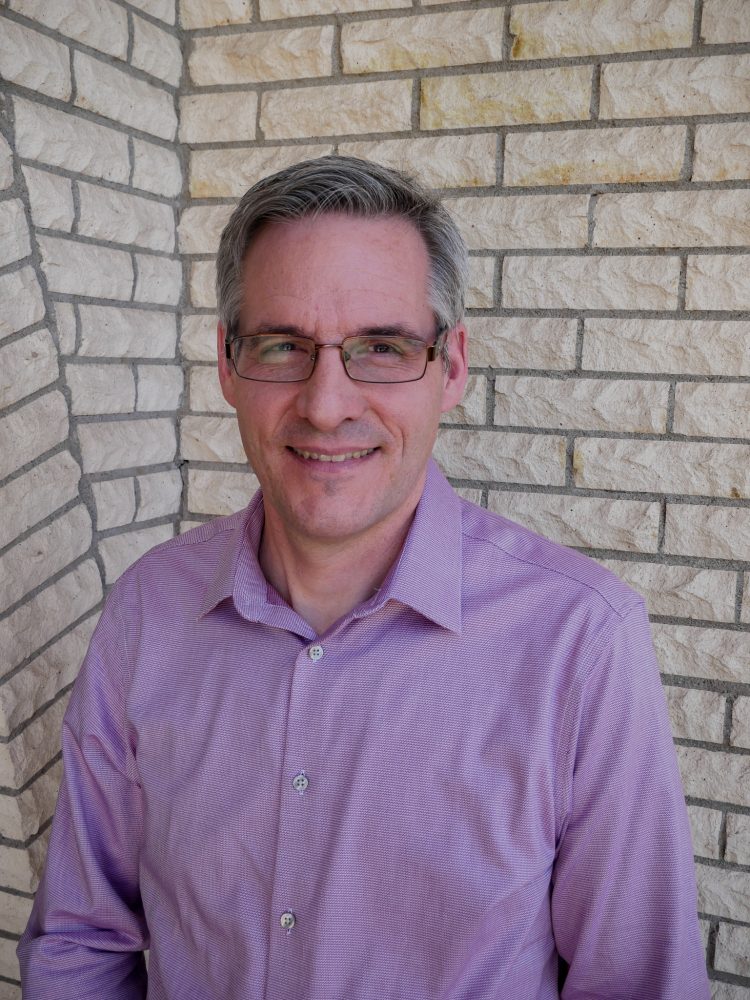Community: Where We Learn From Each Other
A Swiss Immigrant Serves Refugees With Love.

My name is Jean-Michel and I’m from Geneva, Switzerland. I moved to the U.S. about six and a half years ago. I’ve always been an architect and specialized in commercial buildings and luxury hotels. Since moving, I transitioned to residential because it’s a good way for me to learn the rules in a new country.
My wife and I decided to move to Arizona because I wanted to be self-employed and enjoy the freedom that comes with that. We also had a strong desire to serve. My mother in-law had terminal cancer and after praying, we felt strongly that we needed to come and help her. My family and I moved here with almost nothing, just some luggage for each of us. We took care of her for three years, and then we went back to Switzerland. But once in Switzerland, I had the feeling we had to come back, to pack up and sell everything we had. We moved back in about three months. It was a miracle. I got my green card the week before we left.
The experience moving here was nice, especially because our church community is wonderful. From day one they have been caring and I always felt welcomed and loved.
I was prepared by my parents to love refugees. They taught by example. They always had people from different backgrounds coming home to have lunch with us in the summers. We had people with disabilities, people from other countries, people that had no friends. They just always invited people home and my six siblings and I would eat with them.
When you have people in your home you start to know them, start to like them.
Geneva is a multi-international place. We had so many people coming from South America that our world was turning—speaking more Spanish than French. We had to work together and I loved it. They’re fantastic people. They love to have parties and to dance. It was a great time.
In 2009, I went to Africa for the first time. It was scary for me to go to Africa because it’s so different. But I went there and I had this amazing experience for six days.
And here, I work with a lot of Congolese refugees. I had to spend time with them to understand what they needed. Many don’t know how to cross the road here in the US. They don’t know how to go shopping. They arrive at the grocery store and they don’t know what to do. Here it’s so different it’s scary. They have to learn everything and it takes a lot of patience.
The most challenging skill they need is to be able to speak English. Their children learn the language fast, but the parents don’t learn as quickly. They can’t communicate well and then someone else has to interpret for them and as a result their kids grow up very quickly because they are handling things for their parents.
It breaks my heart because the parents are working hard for low wages, and often spend on things they don’t need to. I try to counsel so they can save money and time. Just simple tips: where to get inexpensive food, where to find a good car, a mechanic, etc.
I also see a lot of families struggle because of culture shock. I see it a lot in how the family unit is run. Where they are from, it’s common for the man to hold a lot of the power, but in the U.S. it’s different and they aren’t prepared for this change. When I talk with the men I try to tell them to be more humble and listen to their wife and children, however, change is rare.
I’m trying to instill compassion in my children by involving them in the work that I do. Learning to love one another is such a vital part of life. It’s my goal to show them that there’s more to life than the worldly things such as a dream job and nice car. The real purpose is to learn and gain wisdom while we’re here on this earth.
The most important thing is that the refugees feel loved. To really know their needs you have to be with them, an occasional call or text isn’t as impactful.
Many people in the community help them a lot. They give them rides and help them do administrative stuff. It’s beautiful to watch the community contribute their time to help them feel loved.
Our team members obtain informed consent from each individual before an interview takes place. Individuals dictate where their stories may be shared and what personal information they wish to keep private. In situations where the individual is at risk and/or wishes to remain anonymous, alias names are used and other identifying information is removed from interviews immediately after they are received by TSOS. We have also committed not to use refugee images or stories for fundraising purposes without explicit permission. Our top priority is to protect and honor the wishes of our interview subjects.